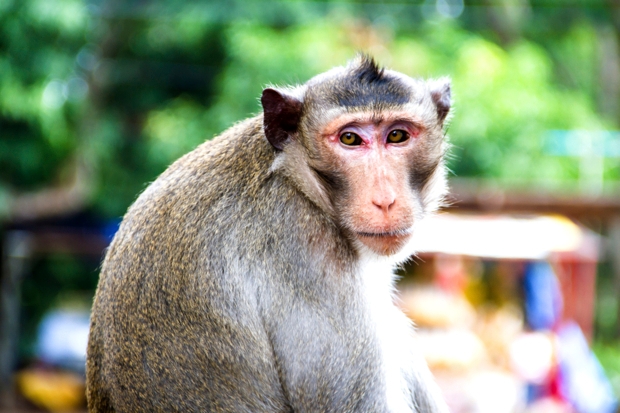Depressed and demoralised after the defeat of his nation of farmers in the second Boer war, Eugène Marais, an Afrikaner patriot, lawyer, naturalist, poet, lifelong morphine addict and journalist, went to live with a troop of baboons in the then remote Waterberg area of South Africa. He camped in their vicinity and was gradually accepted by them and afforded a place in their society. His books about his experiences, My Friends the Baboons and The Soul of the Ape, have subsequently made his name as the father of the scientific study of the behaviour of animals. In The Soul of the Ape he proposed a theory of the evolution of the human psyche that runs approximately as follows. Man and all the higher primates are in a state of bewilderment. Why? Because before the unlikely genetic mutation that gave rise to human intelligence and consciousness, the higher primates were no more intelligent than rodents. And ever since man’s sudden and unlikely mental endowment, there has always been this terrible conflict between the old mind — the inherited, instinctual, animal mind — and the new mind, developed by learning and experience: a conflict perhaps most perfectly expressed by Hamlet’s ‘To be or not to be’ soliloquy, or indeed by Shakespeare’s entire output. To walk through the door of the Singing Ringing Tree, that snobbish, soul-destroying, and madly popular café, and see Mr Paterson seated there at the table by the window in his ill-fitting suit, studying the menu, his brow creased in furious concentration, was to witness this horrific primordial dilemma of hominid and baboon in transparent action.
Mr Paterson is a financial adviser. I’d met him in the pub the previous Saturday night. It must have been at an earlier stage of the evening when I was still able to hold a conversation but no longer able to judge character. I’d said I was half-thinking of buying a flat and what were my chances of a mortgage application being approved these days. He asked me what I did for a living. When I told him, and for whom, he was incredulous. I think he had been brought up to believe that people who spoke with regional accents as pronounced as mine, and poured lager down their throats from angles so near to the vertical, could only ever be hewers of wood and drawers of water. Ask Trev, I said, and he did ask him. Trev confirmed that, yes, I was a journalist, but who I wrote for he hadn’t an effing clue. After that the guy was beside himself with excitement. Why, a person like me could get a mortgage these days without any problem at all, he said. I must be mental paying rental. ‘Tell you what, fella,’ he said. ‘Let’s meet when we’re both sober and I’ll sort you out a mortgage, no problemo.’
So next day we went through my finances over homity pie in the café. He jotted the figures down on his notepad, then he did some sums. My income was less than he’d imagined, much less, and I was sorry for him because he seemed terribly disillusioned by that. But he refused to be beaten. He manfully redid his sums. He posed his questions about my incomings and outgoings in a different, more lenient form. Exactitude became amplitude. And after much scribbling and crossing out he arrived at a set of figures that a lender might, on a good day, after a meal and an excellent bottle of wine, look upon favourably. He sat back in his wicker chair and looked speculatively at me. ‘We can just about do it,’ he said. ‘You could be a man of property by the autumn. The ball is in your court.’
‘I have got a criminal record, you know,’ I said. ‘Might it go against me?’ His small dismissive shrug doubted very much whether a man who wrote for such illustrious papers would have anything very damaging to own up to. ‘What have you got?’ he said. ‘Found drunk at West Ham football ground,’ I said. He rolled his eyes at the insignificance of it. ‘Affray,’ I said. ‘Threatening behaviour.’ Again the dismissive roll of the eyeballs. ‘Possession of amphetamine sulphate. Three burglaries. Criminal damage to a door, lock and door frame.’ ‘Three burglaries!’ he said. ‘Smash and grabs actually,’ I said. ‘On off-licences. Those plate-glass windows are dangerous. I’ve still got the scars.’
I paid for our homity pies and walked with Mr Paterson to the bus stop. He gave me his card and told me to call him, but he spoke without conviction or eye contact. The other people waiting at the bus stop had evidently been waiting there a long time. The bus, when it came, was nearly full. I watched as the doors opened and Mr Paterson and everyone else climbed aboard the bus like monkeys climbing into bushes.







Comments